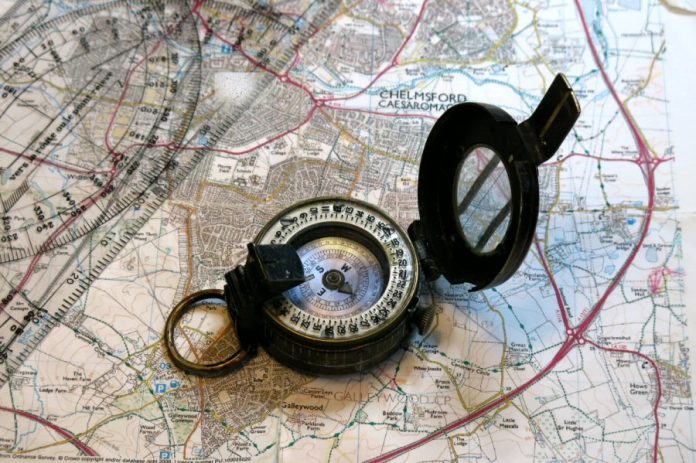A craze which seemed little more than an excuse for IT geeks to get out into the countryside looks set to reach an unusual milestone.
Enthusiasts of the outdoor leisure sport geocaching are looking forward to marking the millionth buried trove.
Geocaches are simply hidden treasure troves, waterproof containers buried off the beaten track, often in crevices or beneath the roots of fallen trees, containing gifts, trinkets, medals and very occasionally small amounts of cash pinpointed at a precise lat/long position by a GPS satellite.
Since the unofficial launch of the craze five years ago, thousands of Britons have been taking part in the pastime – usually at weekends.
Anyone creating a cache traditionally leaves his or her treasure in a container complete with a log book with a message for the next geocacher to find.
Details of the location of the cache are then posted on a website with the precise GPS co-ordinates ready to be found – and there are now hundreds of them across the UK.
More than 50 already exist in the English Lake District and many more in the Yorkshire Dales, and beyond.
New Sport Thanks to Clinton
Geocachers maintain the pastime is a responsible and fun extension of the hide and seek game which many adults would have played around their home with paper and pencils.
It was born when the GPS signal degradation called Select Availability (SA) was removed by the Clinton Administration on May 1st, 2000, opening up the possibility of the new sport.
Caches in 50 States
Since the launch of a dedicated web site, the geocaching sport has grown to caches in all 50 states and over 100 countries. Even Belize has a geocache society.
Andrew Shaw, a firefighter from Leeds, West Yorkshire, says geocaching has added a new dimension to his outdoor rambling activities.
As a fireman, already a keen walker and fitness fanatic, he bought a GPS receiver for £100, and has already unearthed geocaches at Brimham Rocks, near Ripon, and Thruscross Reservoir, near Harrogate.
Pleasures of Walking
Hundreds more lie waiting to be discovered in the Yorkshire region alone, as well as across the UK and Europe.
Andrew says: “One of the pleasures of walking is the ability to get out and about and to enjoy the countryside, and to discover new routes.
“While the traditional OS map is fine for this sort of thing, the GPS system adds that extra bit of interest and geocaches are often located in hard to find places.
“The caches are buried responsibly by people who care as much about the countryside as anyone else, and there are explanation notes inside each box should anyone stumble or unearth a buried cache.
“I’m fairly new to geocaching, but there are hundreds more who take the pastime very seriously on an almost weekly basis.
“While I’m never particularly interested in the contents of the cache per se, it’s a good excuse to get out into the countryside.”
Ramblers’ Association
One glance at a search engine under the topic of ‘geocache’ reveals the depth of interest which families have in the pastime. ‘In-car’ GPS systems are also allowing leisure drivers to make longer drives and short walks to the cache.
A Ramblers’ Association spokeswoman said: “The Ramblers’ Association promotes walking and encourages people to visit the countryside. The joy of walking is in its simplicity.
“You don’t need expensive gear or equipment to go walking and it is as much enjoyed by the rural stroller who can spare 30 minutes as it is by the dedicated rural hiker. Geocaching is another way that people can get out into the countryside and we hope that it encourages them to explore more widely.”
The official geocaching website is www.geocaching.com, which has a clickable link to help walkers discover the nearest geocache site to their home location, whether this be in the UK or throughout the world.
Geocaching Etiquette
Geocaching is an enjoyable pastime played with a GPS and combines a cacher’s skill with the fun of a treasure hunt. Geocache owners invest quite a bit of time, ingenuity, and sometimes money into placing cache containers for players to find. That being said, there are a few courtesies that players and cache owners should adhere to when playing the game.
Tips For Geocache Owners
It should go without saying that cache containers should never be hidden in a dangerous location so as to intentionally pose serious risk of injury or loss of life to a cacher, but there always seems to be someone that ignores the obvious. See Geocaching Safety for more safety tips.
Never hide caches on private property without permission of the land owner, and never hide them near locations that might cause a cacher to have an unwanted encounter with law enforcement such as near a school, daycare, playground, military checkpoint, or other similar location.
Caches should never be buried, but always carefully hidden above ground. Hiding them in trees, crevices, under rocks or leaves is acceptable. In addition, always use a waterproof container to help protect the contents of the cache. There’s nothing pleasant in opening a cache to find the contents soaked, molded, or ruined. The cache owner then has to make a maintenance trip to replace the container and contents.
Make sure co-ordinates are as accurate as possible by taking several readings with a GPS and averaging them. Upon posting the co-ordinates, be sure to proofread them for errors. Bad co-ordinates result in wasted time looking in the wrong location, thereby causing cachers to log a “Did Not Find.” If a geocache receives too many “DNF” reports, the cache could be disabled by a reviewer until the problem is corrected.
Tips For Geocachers
Always practice discretion when caching in public locations. Try not to let non-geocachers, also known as “Muggles”, see the location of a hidden cache. This is the number one reason that caches go missing, or in geocaching terminology, “get muggled.”
The second most common reason for a missing cache is another cacher moving it to a “better location” or a “better hiding place.” Never move the cache container from its original location. If the cache is out in the open, it may just need to be recovered with leaves or branches. If in doubt, contact the cache owner, but don’t move it.
When encountering other cachers at a geocache location, introducing yourself is encouraged, but don’t give away the location of the cache, if known, unless asked for help in finding it. It’s tantamount to telling someone the ending of a book that they haven’t read yet.
Don’t take an item from a cache without having something to trade for it, preferable of equal or greater value. If taking geocoins or travel bugs, don’t keep them. Move them to another cache so someone else can help keep them moving along. Make sure to log the finds and drops as soon as possible. This helps to keep the cache log history current.
Try to use good judgment at all times when caching. Remember that the game is designed to be fun. Always try to avoid any action that might detract from the game. If everyone follows these simple guidelines, the game benefits and so do its players.





